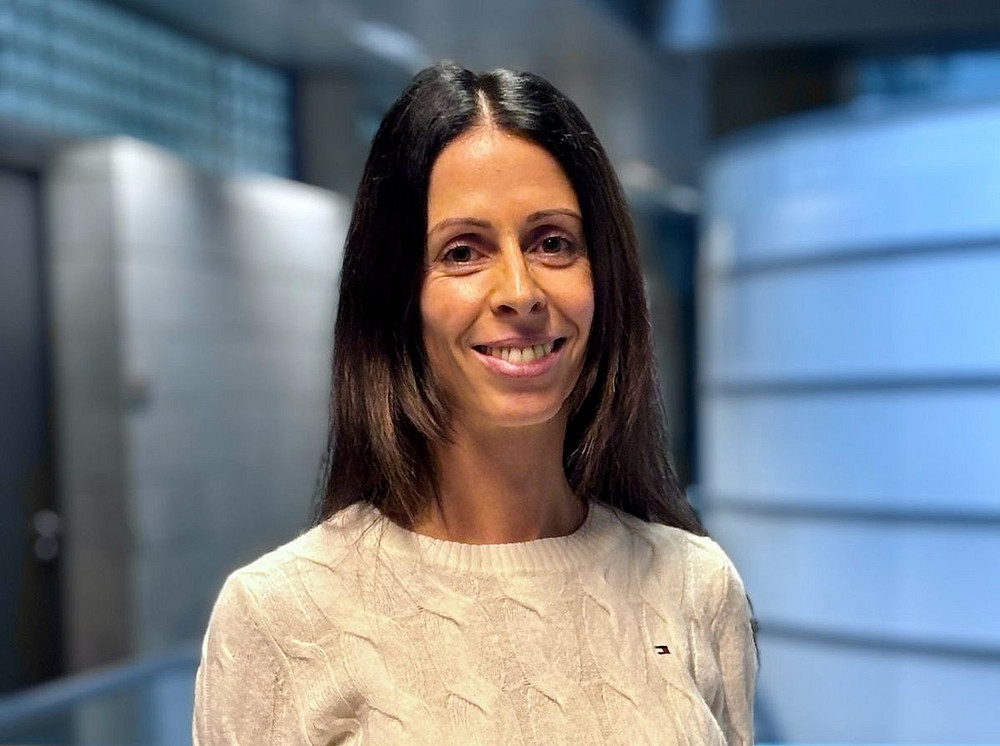"The question of how learning technologies can promote learning should be asked during the development phase - not afterwards."

Silvia Lipp worked in the private sector for many years before embarking on a career in academia. After completing her doctorate, she has been working as a Senior Lecturer with extended research duties at the Institute of Business Education at the University of Graz since February 2025. She is a member of the MINT+ cluster in the FUTURE EDUCATION network.
As a business educator with a passion for digital learning and teaching, she is intensively involved with the role of people in this context. How digital technologies can be used to serve people - this is the central question that guides her research work. She sees her strength in combining different perspectives and looking at topics from different angles.
She describes the fact that she found her way into research as a coincidence. After graduating from a commercial academy, she worked for 13 years in the private sector in various commercial roles. She now benefits from this experience when it comes to combining theory and practice. With the desire to deepen her practical experience theoretically and pass it on as part of a teaching role, she decided to study for a Bachelor's degree in Business Administration and then a Master's degree in Business Education. She originally considered a career in education, but a new opportunity arose at the beginning of 2020: a project position at the Institute of Business Education. There she discovered her passion for research and completed her doctorate in social and economic sciences, specialising in business education. In February 2025, she finally took up a position as Senior Lecturer with extended research duties at the same institute. She has received several awards for her concept for the course "Entrepreneurship Education and Business Ethics".
Her research focuses on learning analytics, i.e. data-based teaching and learning. In her dissertation, she looked at the areas in which the use of data can support teaching and learning - and critically scrutinised where it offers no added value or can even be a hindrance. "If I, as a learner, know that everything I do in the digital learning space is recorded and analysed and that this information apparently allows teachers to draw conclusions about my learning progress and influence the assessment, then this leads me to align my behaviour in the digital space accordingly. I then do what the system expects of me, so to speak. However, this interaction cannot be equated with learning," she explains, "It is more an attempt to present a digital identity that is as favourable as possible. But something is lost in the process: learning activities that cannot be measured so easily are lost from focus." This aspect in particular has received little attention to date.
The increasing use of data also has an impact on teaching practice. Silvia Lipp assumes that with the growing importance of learning technologies, especially in view of developments in the field of artificial intelligence, the generation of data and the fulfilment of data-based indicators will become more important - possibly at the expense of pedagogical considerations.
Her research focus developed through her practical involvement with learning analytics in a specific application scenario during her Master's degree in Business Education. Initially, she was particularly enthusiastic about its potential, but over time her focus increasingly shifted to the challenges and risks. She is particularly critical of the imbalance between the technical and pedagogical perspectives. "The question of how learning technologies can promote learning should already be asked in the development phase - not afterwards. This requires a willingness for interdisciplinary collaboration in order to create a common understanding and identify meaningful links between technological possibilities and pedagogical requirements," she emphasises.
Data is often seen as having enormous potential, but using it in an educational context requires more than just technical consideration and processing. "Human intervention is needed in the sense of critical reflection on how data and technologies can be used in an educationally meaningful and responsible way," emphasises Silvia Lipp.
Dr.rer.soc.oec. BSc MSc. Silvia Lipp
+43 316 380 - 3539
Institut für Wirtschaftspädagogik
nach Vereinbarung
https://wirtschaftspaedagogik.uni-graz.at/de/institut/